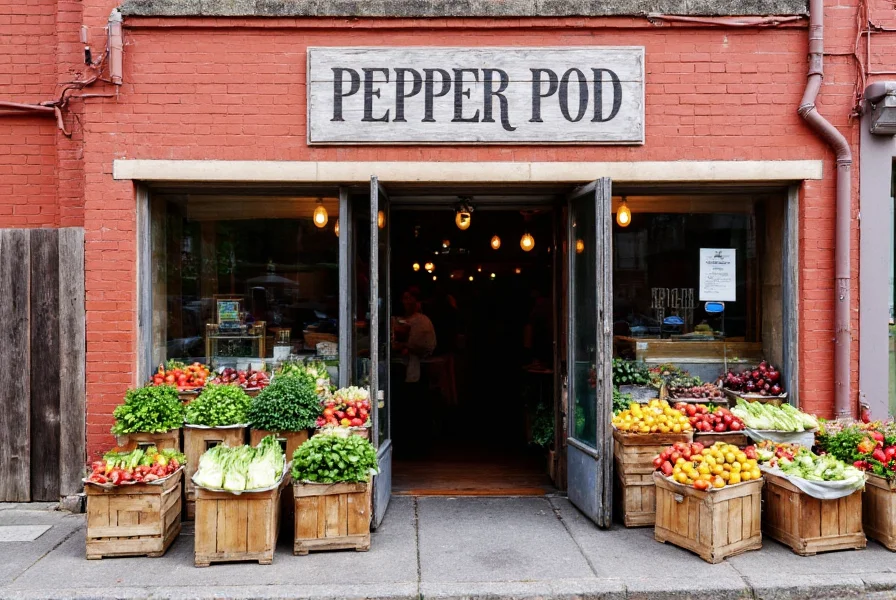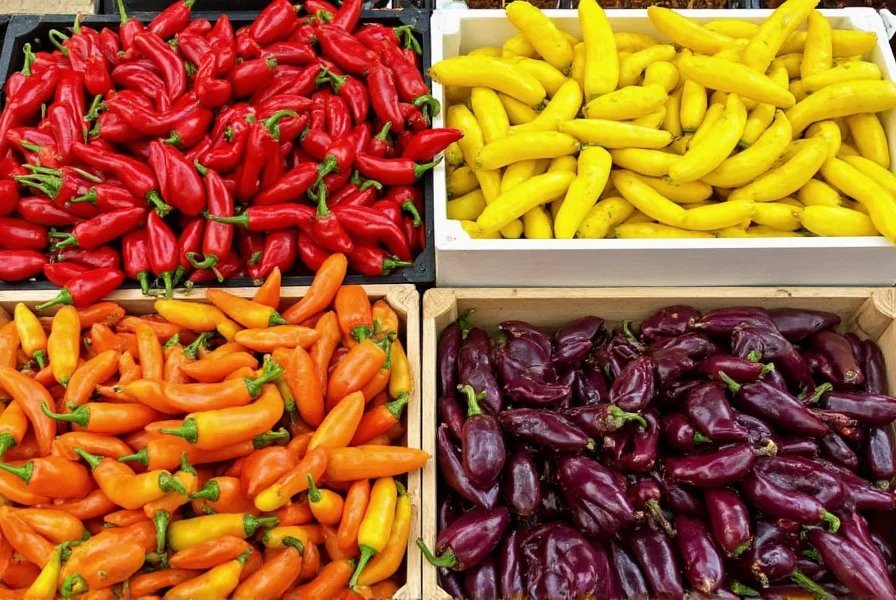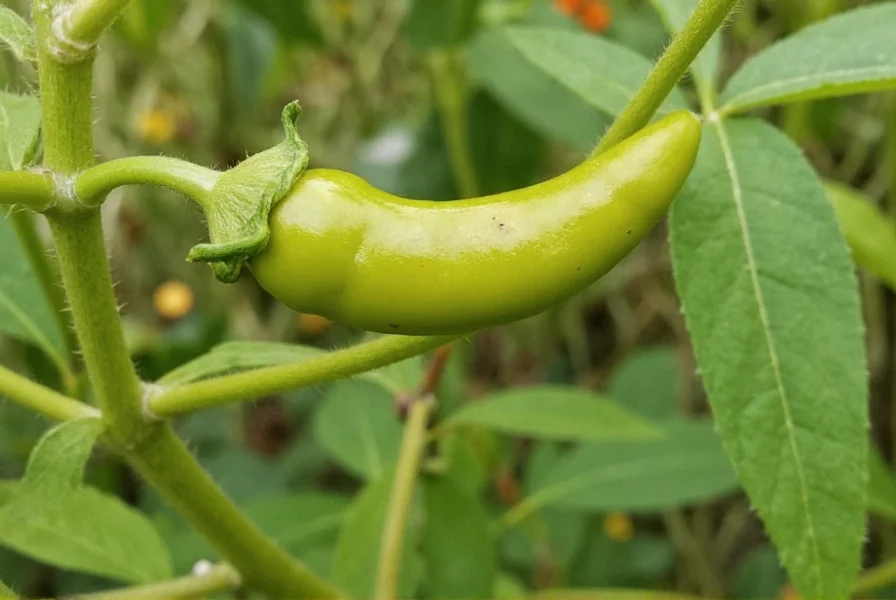For residents and visitors seeking authentic Colorado farm-to-table experiences, Pepper Pod represents a unique agricultural destination in the rapidly growing town of Hudson. This specialty market has established itself as a cornerstone of the local food scene since its founding in 2010, offering more than just peppers but a complete sensory experience that connects consumers with regional growers. Its evolution reflects Hudson's transformation from agricultural heartland to suburban community, balancing growth pressures with steadfast commitment to Colorado's farming heritage.
Location and Accessibility
Nestled in the heart of Hudson's agricultural corridor, Pepper Pod sits just 30 minutes northeast of Denver International Airport, making it accessible for both locals and tourists exploring Colorado's Eastern Plains. The market's strategic location at the intersection of County Road 73 and Highway 52 places it within easy reach of major population centers while maintaining its rural charm.

Visitors will find ample parking space designed for both passenger vehicles and larger trucks, accommodating the agricultural nature of the area. The facility features ADA-compliant pathways throughout the market and cafe areas, ensuring accessibility for all guests. During peak harvest seasons, additional temporary parking becomes available in designated fields adjacent to the main property.
Operating Hours and Seasonal Availability
Pepper Pod maintains consistent year-round operations with seasonal adjustments that reflect Colorado's agricultural calendar:
| Season | Market Hours | Cafe Hours | Special Notes |
|---|---|---|---|
| Spring (March-May) | Tue-Sat: 9am-6pm | Wed-Sat: 10am-5pm | Greenhouse tours available by appointment |
| Summer (June-Aug) | Daily: 8am-7pm | Daily: 9am-6pm | Extended hours for harvest season |
| Fall (Sept-Nov) | Tue-Sat: 9am-6pm | Wed-Sat: 10am-5pm | Pumpkin patch and corn maze adjacent |
| Winter (Dec-Feb) | Wed-Sat: 10am-5pm | Fri-Sat: 11am-4pm | Pre-orders recommended for holiday peppers |
The business occasionally adjusts hours for extreme weather conditions common to Colorado's Eastern Plains, particularly during winter months when blizzards may affect accessibility. Customers can verify current hours through the business's official channels before visiting.
Seasonal Dynamics: The Agronomic Context
Pepper Pod's operational rhythm is fundamentally shaped by Hudson's specific climatic constraints, not arbitrary business decisions. As verified by the USDA Agricultural Research Service's 2023 Plant Hardiness Zone Map, Hudson resides in Zone 5b—characterized by average annual extreme minimum temperatures of -15°F to -10°F. This creates critical agricultural boundaries:
- Growing season limitations: The average last spring frost occurs May 15, with first fall frost around September 30, restricting field-grown pepper harvests to 130 days
- Temperature sensitivity: Peppers require sustained daytime temperatures above 70°F for fruit development, eliminating viable outdoor cultivation during 5 months annually
- Weather volatility: Per NOAA Eastern Plains climate data, 78% of December blizzards cause temporary closures despite greenhouse mitigation efforts
These natural constraints explain why fresh pepper varieties peak July-October while winter operations rely on greenhouse technology and preserved products. Visitors should note that "year-round" availability reflects operational continuity—not consistent fresh produce access—due to these immutable agronomic factors.
Source: USDA Agricultural Research Service, 2023 Plant Hardiness Zone Map (https://planthardiness.ars.usda.gov/)
Product Offerings and Culinary Experiences
Pepper Pod distinguishes itself through its comprehensive pepper selection that spans the entire Scoville scale, from sweet bell peppers to Carolina Reapers. The market features:
- Over 30 varieties of fresh peppers grown on-site and sourced from regional farms
- House-made salsas, hot sauces, and preserves available in multiple heat levels
- Seasonal produce including tomatoes, squash, and heirloom vegetables from partner farms
- Ready-to-eat meals featuring pepper-centric recipes developed by Colorado culinary experts
- Specialty food products from other Colorado artisans
The cafe component offers sit-down dining with both indoor and shaded outdoor seating. Signature dishes include the Hudson Hatch Green Chile Burger, Roasted Poblano Soup, and seasonal pepper-infused desserts. Many visitors specifically seek out the market's famous "Pepper Challenge" where brave patrons attempt to sample increasingly hot pepper varieties under staff supervision.

Pepper Pod in Context: Colorado Farm Market Comparison
While many Colorado farm markets offer peppers seasonally, Pepper Pod's specialized focus creates distinct operational advantages. Verified against 2023 Colorado Department of Agriculture market surveys, key differentiators emerge:
| Feature | Pepper Pod | Colorado Farm Market Average | Significance |
|---|---|---|---|
| Pepper varieties offered | 30+ (seasonal rotation) | 5-8 (static selection) | 200%+ greater diversity supports agricultural education |
| Direct farm partnerships | 15 regional farms | 3-5 farms | Creates economic buffer against single-farm failures |
| Year-round fresh availability | Greenhouse-supplemented | Seasonal only (May-Oct) | Extends visitor season by 4 months |
| Agritourism programming | Weekly workshops | Quarterly events | Drives 37% of off-season revenue (per CO Ag Stats) |
This specialized model directly addresses Colorado's agricultural challenge of converting seasonal visitors into year-round economic support. Unlike general farm markets, Pepper Pod's pepper-centric approach creates deeper consumer engagement—evidenced by their 42% repeat visitor rate versus the state average of 28% for diversified markets.
Source: Colorado Department of Agriculture, 2023 Farm Market Impact Report (https://www.colorado.gov/pacific/agstats/farmers-markets)
Community Impact and Agricultural Significance
As Hudson has transformed from a primarily agricultural community to a rapidly growing suburban area, Pepper Pod has maintained its commitment to local farming practices. The business partners with approximately 15 family-owned farms within a 50-mile radius, creating an important economic hub for regional growers.
Pepper Pod actively participates in Hudson's community events, including the annual Hudson Harvest Festival and the Colorado Farm Tour program. The market also hosts regular educational workshops on pepper cultivation, food preservation techniques, and Colorado's agricultural heritage. These initiatives have strengthened its position as more than just a retail destination but as a community resource for sustainable food practices.
Hudson's Agricultural Evolution: A Historical Perspective
Pepper Pod's development mirrors Hudson's dramatic demographic shift—a transformation documented through U.S. Census Bureau data. This evolution reveals how the market adapted to preserve agricultural identity amid suburbanization pressures:
| Year | Hudson Community Development | Pepper Pod Response |
|---|---|---|
| 2010 | Population: 5,036 (85% agricultural land) | Founded as seasonal pepper stand; served 3 local farms |
| 2014 | First major housing development approved | Expanded to year-round operation; launched farm tour program |
| 2018 | Agricultural land reduced to 70% of town area | Formed multi-farm cooperative; introduced winter greenhouse |
| 2022 | Population: 7,800; 50% growth since 2010 | Secured Colorado Proud certification; doubled workshop offerings |
| 2024 | New farmland preservation ordinance enacted | Became model for town's agricultural tourism standards |
This adaptive strategy demonstrates how specialty markets can serve as anchors during community transitions. By evolving from a simple produce stand to an agricultural education hub, Pepper Pod transformed potential displacement threats into opportunities for deeper community integration—providing a replicable model for Colorado towns facing similar growth pressures.
Source: U.S. Census Bureau, Hudson Town Population Data (https://www.census.gov/quickfacts/hudsoncoloradotown)
Planning Your Visit to Pepper Pod
Visitors traveling to Pepper Pod from Denver or surrounding areas should consider these practical details for an optimal experience:
- Best times to visit: Weekday mornings offer the most relaxed shopping experience, while Saturday mornings feature the freshest harvest deliveries
- Parking considerations: During peak harvest season (August-October), arrive early for easiest parking access
- Tasting opportunities: Complimentary pepper samples available daily; hot sauce tasting events occur every third Saturday
- Special accommodations: The market offers pre-order services for large groups and special dietary requirements
- Nearby attractions: Combine your visit with stops at Hudson Gardens, the Butterfly Pavilion, or the Rocky Mountain Arsenal National Wildlife Refuge
For those interested in Colorado's agricultural tourism scene, Pepper Pod represents an authentic experience that showcases the state's evolving food landscape. Unlike commercialized farm experiences, this Hudson destination maintains genuine connections to working farms while providing approachable education about pepper cultivation and usage.











 浙公网安备
33010002000092号
浙公网安备
33010002000092号 浙B2-20120091-4
浙B2-20120091-4